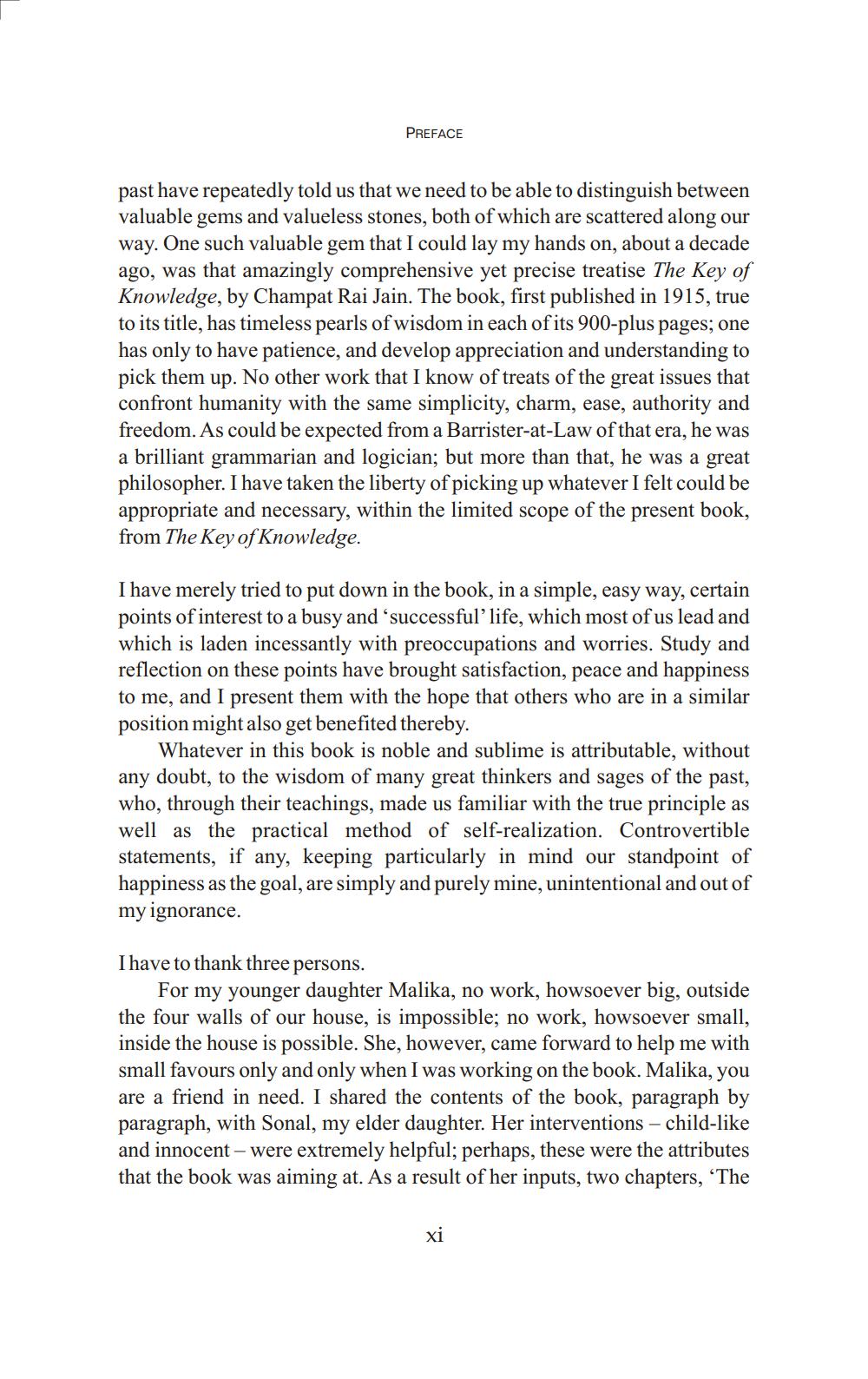________________
PREFACE
past have repeatedly told us that we need to be able to distinguish between valuable gems and valueless stones, both of which are scattered along our way. One such valuable gem that I could lay my hands on, about a decade ago, was that amazingly comprehensive yet precise treatise The Key of Knowledge, by Champat Rai Jain. The book, first published in 1915, true to its title, has timeless pearls of wisdom in each of its 900-plus pages; one has only to have patience, and develop appreciation and understanding to pick them up. No other work that I know of treats of the great issues that confront humanity with the same simplicity, charm, ease, authority and freedom. As could be expected from a Barrister-at-Law of that era, he was a brilliant grammarian and logician; but more than that, he was a great philosopher. I have taken the liberty of picking up whatever I felt could be appropriate and necessary, within the limited scope of the present book, from The Key of Knowledge.
I have merely tried to put down in the book, in a simple, easy way, certain points of interest to a busy and successful' life, which most of us lead and which is laden incessantly with preoccupations and worries. Study and reflection on these points have brought satisfaction, peace and happiness to me, and I present them with the hope that others who are in a similar position might also get benefited thereby.
Whatever in this book is noble and sublime is attributable, without any doubt, to the wisdom of many great thinkers and sages of the past, who, through their teachings, made us familiar with the true principle as well as the practical method of self-realization. Controvertible statements, if any, keeping particularly in mind our standpoint of happiness as the goal, are simply and purely mine, unintentional and out of my ignorance.
I have to thank three persons.
For my younger daughter Malika, no work, howsoever big, outside the four walls of our house, is impossible; no work, howsoever small, inside the house is possible. She, however, came forward to help me with small favours only and only when I was working on the book. Malika, you are a friend in need. I shared the contents of the book, paragraph by paragraph, with Sonal, my elder daughter. Her interventions - child-like and innocent - were extremely helpful; perhaps, these were the attributes that the book was aiming at. As a result of her inputs, two chapters, “The




